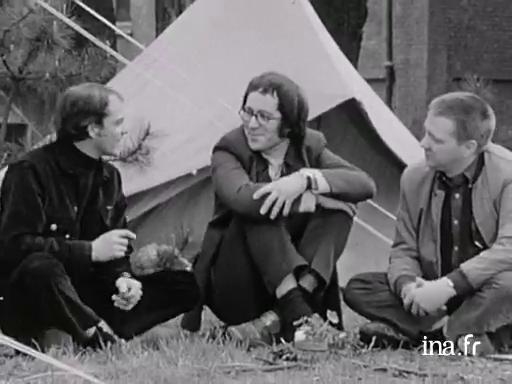Archigram

Information
Interview with the young architects of the English group Archigram: Peter Cook, David Greene and Dennis Crompton.
Context
Archigram is first the title of a British magazine from the 60s, published in 9 issues from 1961 to 1974. Started by six architects, Peter Cook, David Greene, Mike Webb, Ron Herron, Warren Chalk and Dennis Crompton, the review would turn out to be legendary. The middle of the 50s brought with it the peak of mass production. England was invaded by American culture, inundated by its industrial products in screaming colours, sub-cultures of industry and entertainment, film, rock and roll and other derivatives of hyper-consumerism.
Following in the footsteps of Richard Hamilton, the Independent Group artists, from which Reyner Banham and the Smithson's research, Archigram opened up architecture to pop-culture. Its strong iconography, inspired by science-fiction and comic-books, is an indispensable support for its ephemeral architecture of hobby and pleasure. The beatnik romanticism and the legend of an individualist, nomadic population that technique will liberate from sedentarianism and weightlessness haunts their collages. Their futurist visions are marked by the launching stations of rockets at Cape Kennedy. Their slogans revolve around the playful, disposables, robots, containers, events, connections, the instantaneous, emancipation, inflatable... Remembered for Living city, their only common exhibition at the ICA in 1963, Plug-in and Walking cities and their two major media successes, Beyond Architecture in 1967, then Instant City.




